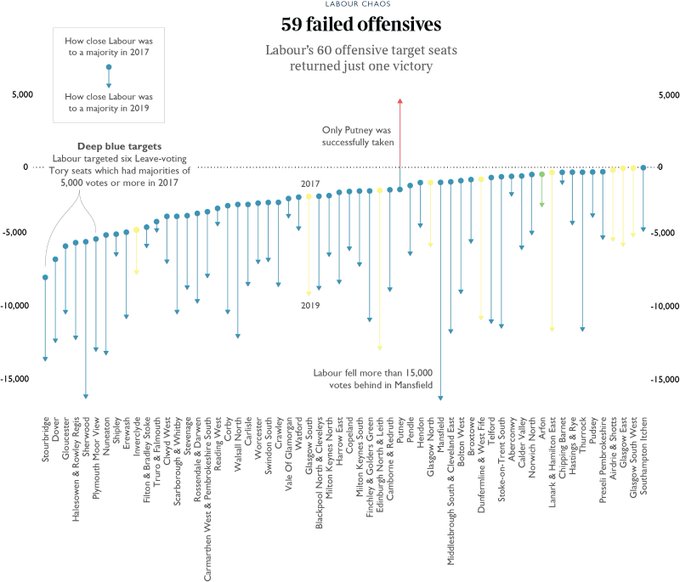There is an excellent article in the New Statesman by David Gauke, an ex-Tory politician writing about the current state of his old political party and what comes next.
With the drip, drip, drip of constant scandals from No10 where our leaders seem to be shameless in their partying whilst the rest of us were left isolated and alone, it feels somewhat like the final series in a tv soap opera. We all expect the PM to go. The only question is when and who puts in the knife.
It is tempting to believe that the new leader will remake the party, which is in power in the UK two thirds of the time, into it’s old rather staid and, well, conservative, image.
The politics of 2019 were certainly extraordinary and, it is certainly tempting to view Johnson as an aberration, someone that only came to power in those very extraordinary circumstances. Now that those circumstances have passed, the argument goes, we can return to normality. The Conservative Party can elect a more conventional leader and pursue a more conventional Tory agenda. Post-Johnson politics can look like pre-Johnson politics (only with the UK outside the EU because, after all, he got Brexit done). Let us never speak of him again.
But this ignores the causes of the Brexit impasse, it ignores the political risks that faced the Conservative Party in 2019 and it ignores the political opportunity which Johnson seized at the last general election and which the Conservatives are likely to want to replicate.
Johnson skilfully exploited the nation’s weariness with a problem he had helped to create – the apparently endless drama that was leaving the European Union. Reassured by Leave politicians that this would be a simple and straightforward matter in which the UK held all the cards, it came as a shock to the electorate that negotiations proved to be complicated and that the EU was not prepared to give the UK everything it demanded.
Matters were not helped by the most intractable issue being one of little direct relevance to the population of Great Britain – the border between Northern Ireland and the Republic of Ireland. This received little attention at the time of the 2016 referendum (despite the best efforts of Tony Blair and John Major) but the logic of the issue meant that there was no way of delivering a satisfactory Brexit.

The UK’s regulatory and customs divergence from the EU meant that a UK-EU border was necessary. We could, of course, have decided not to diverge on regulatory and customs matters, but this would have brought into question the whole point of Brexit.
It was this trilemma that sunk May’s withdrawal agreement. As a sincere unionist and someone acutely conscious of the risks of creating a border on the island of Ireland, she obtained an agreement that effectively kept the UK in the single market for goods until the border issue could be resolved. This was a practical solution to the trilemma, but it failed the Brexiteers’ purity test.
Brexit had become redefined so as to mean that any compromise with the EU (or, indeed, any compromise with logic) was unacceptable. As one of the leaders of the Leave campaign, Johnson might have engaged with and understood the issue and tried to explain to his followers that it was necessary to address a real practical problem. Where he led, Brexit supporters might have followed.
Instead, Johnson dismissed the Northern Ireland border as nit-picking by Remainers (once likening it to moving between the two London boroughs of Islington and Camden) and sided with the sovereignty purists of the European Research Group. His answer to the Northern Ireland border question was to hang tough, shout louder and threaten the EU with a no-deal Brexit.
On the substance, Johnson turned out to be wrong. He thought he could avoid a border but agreed in October 2019 to putting one in the Irish Sea. He tried to reverse this while negotiating a new EU trade deal in the autumn of 2020 but again backed down and is still trying to renegotiate the Northern Ireland Protocol without much success. His position, however, did bring political rewards – the support of the European Research Group in the Conservative leadership election and a comfortable victory among the staunchly Eurosceptic party membership.
Johnson’s triumph among Conservative MPs was not, of course, limited to the diehard Brexiteers. It helped enormously that he was the favourite among the members and was always likely to win. That can focus the minds of those wanting a frontbench career. He was also the candidate who could most plausibly see off Nigel Farage’s Brexit Party, the winner of the 2019 European Parliament elections.
The risk for the Conservatives in 2019 was that they faced being squeezed on the Brexit-supporting right by Farage while being squeezed on the Remain supporting centre by the Liberal Democrats. This had happened in the European elections and Conservative MPs were terrified that it would happen again in a general election.

Johnson’s strategy was to unite the Brexit side of the debate. Brexit had created a risk but also created an opportunity. By seeing off Farage, it meant that the Conservatives could appeal to a new part of the electorate – cultural conservatives who had voted Labour and Ukip in the past and who wanted to see Brexit done. They liked Johnson – a charismatic, anti-establishment, politically incorrect, optimistic, patriotic, affable character who did not take himself too seriously. He promised them change, more nurses and police officers and a bit of a laugh. He was also up against Jeremy Corbyn, an historically unpopular figure. In December 2019, Johnson’s ambition was fulfilled and he won an 80-seat majority.
It is worth dwelling on this moment. It tells us three things about modern politics that are relevant to the post-Johnson world as well as his emergence as Prime Minister – the nature of the parliamentary party; the determination to close down space to the Conservatives’ right; and the changing alignment of British politics.
Johnson’s three predecessors as Conservative prime minister – John Major, David Cameron and Theresa May – were all brought down (or, at least, deeply damaged) by their inability to control the Eurosceptic right. Johnson, in contrast, exploited the right.
For a sizeable element of the Tory party, sovereignty has assumed an almost theological quality. They no longer exist in a world of trade-offs and compromises, of pros and cons, but a world of absolutes. In the context of Northern Ireland, this requires a continued refusal to accept the choices available and an insistence that we can avoid a border in the Irish Sea and diverge from the EU. Future leadership candidates will be acutely aware of this.
Incidentally, for most of these MPs, they also have a vision as to what Brexit means. Divergence is for a purpose and that purpose is to make the UK more competitive, to deliver the next stage of the Thatcherite revolution. The reality is that Brexit means reversing much of Thatcherism – putting up taxes because the economy is smaller than it otherwise would have been, erecting trade barriers and imposing new regulatory burdens on business – but the increasing tendency is to blame Johnson’s Big State instincts for this predictable turn of events.
The events of 2018-19 also revealed a wider change of temperament within the parliamentary party. Conservative politics became about campaigning not governing, with well-organised factions talking to the like-minded, and using every method possible to exert pressure on the government. The Tories became more a party of protest than of government, with a research group for every cause.
In recent weeks, the most prominent of these groups has organised opposition to Covid restrictions. The country is fortunate that Omicron has turned out to be as mild as it has – something that was not certain when a hundred Conservative MPs rebelled over the Plan B restrictions. Had these MPs got their way, with Plan B not implemented, (and had Chris Whitty, the chief medical officer, and Jenny Harries, the chief executive of the UK Health Security Agency, not warned the public to ration their socialising), the NHS may well have been overwhelmed this January.
Again, as with Brexit, Covid-19 has exposed a tendency among Conservative MPs to view the world as they would like it to be, not as it actually is. Their risk appetite is insatiable. Johnson’s removal would not change this – he was relatively cautious on Omicron.
The threat of an alternative party to the right of the Conservatives has diminished since 2019. This is partly due to Johnson’s positioning and partly due to coronavirus. Farage and other Brexit veterans have associated themselves with the anti- lockdown cause, which has had little cut-through with their traditional older, Covid-vulnerable supporters. The Reform Party has consistently performed poorly in by-elections and opinion polls.
Post-Covid, however, the opportunity to change the subject and prompt public animosity towards immigration will increase. A significant breakthrough for the Reform Party remains unlikely but Farage’s influence comes not from his own success but his influence over those Conservatives easily spooked by the prospect of losing votes to him. If anything, Johnson’s removal would increase these Tory concerns because his successor will not have Johnson’s track record of diminishing Farage’s appeal.
The final lesson is that there is a long-term realignment of politics in the UK and throughout the developed world. Whereas once the economically secure voted centre right and the economically insecure voted centre-left, voting behaviour has become increasingly influenced by cultural matters. The way in which a particular constituency votes increasingly depends not on income levels but upon population density, ethnic diversity and education levels.

This has created an opportunity for the centre right and helped deliver the Red Wall to the Tories. Johnson, with his performative patriotism, ideological flexibility and apparently disarming personality, was able to woo this part of the electorate in a way that few Conservatives can. Reconciling the small-state instincts of many Tories with this electoral opportunity is a challenge that any leader of the Conservative Party will have to address but, with our current political geography, it is hard to see how the views of the median voter in a Red Wall swing seat (economically to the left, culturally to the right) can be ignored. This does not suggest a return to Cameroon-style liberal conservativism any time soon.
Johnson’s period in office may be coming to an end. What replaces him will not be Johnsonian as such. He never offered a coherent philosophy and, ethically, any change will be a step in the right direction. Rule-breaking parties won’t be an issue. But the forces apparent in 2019 – an unruly, even delusional, parliamentary party, the fear of a threat from the right, and a realigned electorate that rewards cultural conservatism – will continue to drive the politics of the Conservative Party for years to come.















